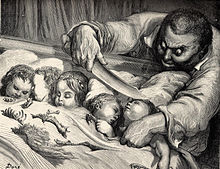Every time I do school visits or go to a book fair, there’s always a grumpy paedophobic author somewhere. S/he’s been writing for longer that I’ve been alive and s/he’s seen it all. S/he’s sipping coffee in the teachers’ common room and ranting about those damned kids and their unimaginative questions. S/he’s in here for the €€, not the experience. S/he’s going on and on and on about ‘that annoying kid who always asks how long it takes to write a book and where I get my ideas from.’
And me, meanwhile, young, enthusiastic and naive and rather a fan of younger humans, I’m all like ‘Oh my! Goodness me! How can you possibly say that, you monster, you ogre ? Surely it is the greatest happiness in the world to talk to little readers, however dumb the questions! Surely the marvelous feeling of profound and inexplicable bliss that fills one when one is faced with children is universally shared!’ and I put my hand on my heart and I think of the cute freckles, dimples and missing teeth, and I swallow back tears of shock and fear and I wonder if this clearly deranged author should really be allowed to roam the school premises.
Slight exaggerations may have found their way into the previous two paragraphs, but the question’s not a stupid one. Should children’s authors actually like children? I don’t mean just tolerate, but actually like them? Should they feel increased levels of happiness, a certain special sense of connection, when in the presence of the kawaii beings? After all, there are dozens of misanthropic adult authors who don’t give a damn about their readers. And no adult author will ever be asked to confirm that they like adults.
‘Oh yes, I love adults – I just love them. I love their happy faces when I sign their books, and they always come up with things that I find just wonderfully unexpected and marvelous… how can I explain it? It’s so mysterious. I can’t say why, but I’ve always been at ease with adults. Maybe it’s because I haven’t forgotten what it feels like to be an adult. I get on with them really well. They’re great, basically, and that’s why I write for them.’
We’d think they were bloody mental. What if some authors actually like writing for children because – like Philip Pullman – they think it’s a great experimental platform – which it is – but don’t really have anything to say to real kids outside of what they tell them through their art? How much of it is about the idea of childness, the ability to play with concepts, art forms, narratives that are particular to children’s literature – and how much of it actually has to be about real children?
That’s the crux of the matter, really. You can love the idea of children just as you love the idea of backpacking up and down the Andes, but you might suddenly find yourself a little bit less keen if you actually ended up parachuted into the montainous jungle. I think I love real children. I think I love talking to them, I think they make me laugh, surprise me and amaze me, and I think being around them makes me happy, but rationally, there’s no way this sweeping generalisation is possible without a preexisting idea of kids as a cool bunch of people, without a preexisting idea of childness as a special property for a human to have.
Because it’s a bit like saying ‘I love cats’. I do love cats. But in fact I don’t. I don’t love all cats. I don’t like the ones that scratch and bite, bizarrely enough; I prefer the cuddly ones that purr, thank you very much. And yeah, when I go into a primary classroom, I tend to prefer the enthusiastic little Hermione whose hand shoots up into the air all the time to the sexually precocious duo of boys who ogle me and snigger and scribble down things to each other on a piece of paper.
So we have to grant one thing to the paedophobic writer: at least they’re seeing the kids as humans. As fallible, annoying, boring and silly, but as humans. The blissful, all-loving writer who ‘just adores kids in general’ might as well be saying that they love cats. Or old people. Or gays. Or Tories. Or dyslexics. You get the idea.
There are people who just love writing and for them, going into schools to talk to real kids is one of those things you have to do in your day job but that you don’t particularly like, such as brainstorming the name of a new guava-and-tapioca shampoo or filling in an Excel spreadsheet with the office’s stationary budget for the year or whatever people who have real jobs do.
And then there’s the rest of us, bumbling around like a flotilla of fairy godmothers, hopelessly endeared to the little readers, envisaging our work as a sort of whole project of life and mission for and with children, and unable to understand that yeah, some writers may tailor every single one of their books for people whom, in reality, they don’t really care about very much.



